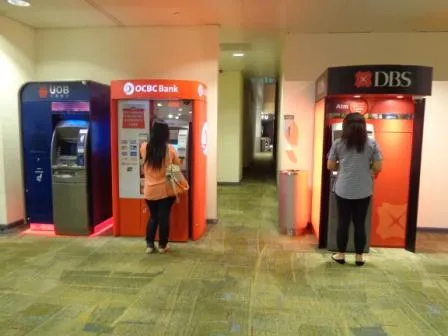
Singapore's tighter lending rules to have minimal impact on banks' loan growth
Find out what MAS' amendments entail.
According to Maybank Kim Eng, the Monetary Authority of Singapore’s (MAS) amendments to its credit cards and unsecured credit rules seek to tighten lending practices rather than restrict personal lending, particularly since affected borrowers have an 18-month grace period to regularize their positions.
Here's more from Maybank Kim Eng:
We see minimal impact on banks’ loan growth from these amendments and maintain our NEUTRAL call on the sector, with DBS as our top pick.
Improving lending practices. The MAS’ new measures are aimed primarily at strengthening lending practices to individuals, in relation to credit card (CC) and other unsecured loans. These measures include conducting proper credit checks on borrowers and increasing the level of disclosure to borrowers with regard to their liabilities.
60-day limit. Banks are disallowed from granting further unsecured credit to individuals who are 60 days or more past due on any CC or unsecured credit facility. A borrower who pays the required minimum payment due date will not be regarded as past due.
MAS acknowledges that most banks already limit credit extensions when accounts are more than 30 days past due, thus the 60-day limit essentially provides borrowers time to make good on their minimum payments.
12-month salary cap. Banks are disallowed from granting further unsecured credit to individuals whose outstanding unsecured debt aggregated across banks exceed 12 months of the individuals’ incomes for 90 days or more.
MAS has granted a transition period of 18 months before the limit is effected, to give borrowers time to pay down their debt to within the limit. Banks will still have the discretion to extend credit to individuals who exceed the limit, if the borrower’s annual income is at least SGD120k or net personal assets exceed SGD2m.
The impact of the 12-month rule is difficult to gauge as yet because it refers to the aggregate borrowings of an individual across all banks.
Currently, a CC holder’s outstanding balance cannot exceed 8 months of income. As for personal loans, OCBC’s EasyCredit plan stipulates a maximum loan of 2x a borrower’s monthly salary if he earns SGD1,667-SGD2,500/month, 4x his monthly salary if he earns SGD2.5kSGD10k/month, 6x his monthly salary if he earns >SGD10k/month.
Exposure to non-mortgage loans is manageable. Aside from mortgages, the banks provide no further breakdown of consumer loans. Loans to professionals and individuals ex-housing made up 7% of DBS’ loan book (at the bank level) end-2012.
The ratio was 7.7% for OCBC and 14% for UOB. These ratios would include big-ticket items eg auto loans, but indicatively, exposure to unsecured credit is manageable, relative to a bank’s total portfolio.






![Lorem Ipsum [ABF 1]](https://cmg-qa.s3.ap-southeast-1.amazonaws.com/s3fs-public/styles/exclusive_featured_article/public/2025-03/a_hand_pointing_to_a_futuristic_technology_5b87c9d0e3_1.png.webp?itok=2w0y1WhS)


![Cross Domain [Manu + SBR + ABF + ABR + FMCG + HBR + ]](https://cmg-qa.s3.ap-southeast-1.amazonaws.com/s3fs-public/styles/exclusive_featured_article/public/2025-01/earth-3537401_1920_4.jpg.webp?itok=WaRpTJwE)







 Advertise
Advertise

